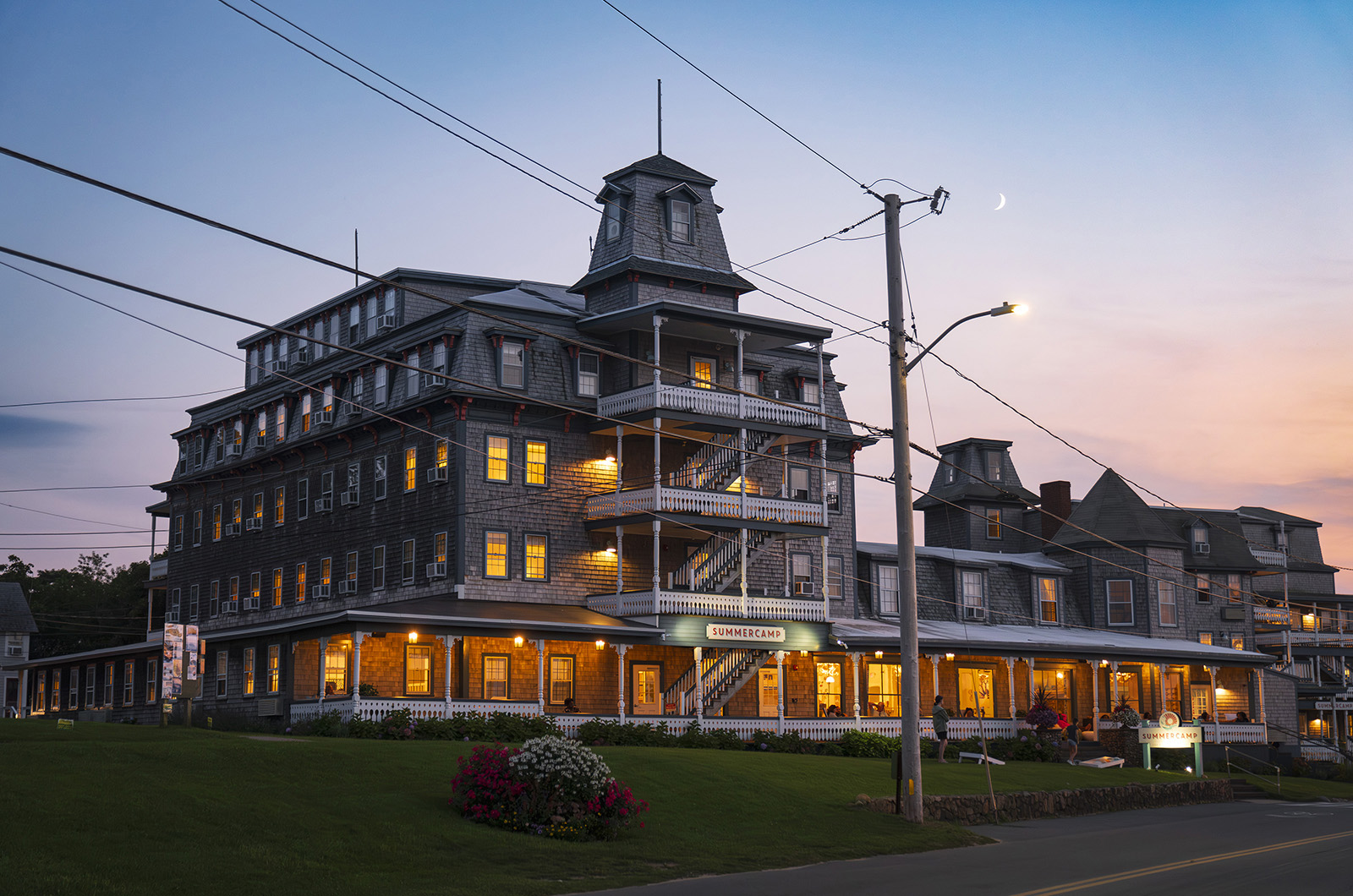While the number of vacation home rentals has exploded on Martha’s Vineyard since Covid, the proportion of lodging tax revenue from hotels grew sharply in the last two years, now accounting for about a third of lodging tax receipts Islandwide.
In the fiscal year ending in July 2023, hotels, motels and short-term rentals combined brought in a record high $8.8 million in local rooms tax, a fee paid by vacationers and given to the local municipalities. Of that number, $2.8 million was from hotels and other traditional lodging, or about 32 per cent.
The year before, 33 per cent of the total rooms tax for the Island towns came from hotels, even as many more vacation homes registered for short-term rentals. That was sharply up from fiscal year 2021, when just 22 per cent of the $5.5 million in rooms tax was from hotels. The figures were obtained by the Gazette in a records request to the state Department of Revenue and reflect vacationers’ return to hotel rooms after 2020.
Several hotel owners said the summers of 2021 and 2022 were some of the busiest ever, and, though 2023 was either flat or slightly down, an increase in room rates resulted in the rising trend in tax revenue.
“The numbers went bananas,” said John Tiernan, the co-owner of the Dockside Inn in Oak Bluffs.
Each town has a 4 to 6 per cent local option tax on hotels, known as the lodging or rooms tax, that is paid by vacationers. Short-term rentals such as AirBNBs were folded into the tax in 2019, making it hard to distinguish how traditional lodging was faring.
The state broke down the numbers for the past three years and the first quarter of the current fiscal year. While the number of hotel rooms on the Vineyard has remained largely static, short-term rentals have grown from about 2,500 in 2022 to 3,800 in 2023.
At the Nobnocket Boutique Inn in Vineyard Haven, owner Annebelle Hunton said 2023 was close to 2019 after “bumper” years in 2021 and 2022.
Four Island hotel owners, including Ms. Hunton and Mr. Tiernan, said their prices have risen to account for other ballooning costs.
“Prices definitely went up in the house rental market and hotels,” Ms. Hunton, the president of the Martha’s Vineyard Lodging Association said.
The average daily room price at the Dockside Inn in 2012 was about $175, according to Mr. Tiernan. It’s now gone up to about $300. Mr. Tiernan said part of it is due to rising prices at larger hotels. When potential guests see other hotel prices are so high, they sometimes question if his establishment has standard amenities such as TVs. So, Mr. Tiernan raised his rates and saw more bookings come in.
At the Winnetu in Edgartown, this year was packed with weddings to clear the backlog of nuptials delayed by Covid. Next year, owner Mark Snider expects to see some decline after the past peak.
“It’s caught up,” he said of the weddings. “I think we are going to see some of those inevitable changes.”
Hotel owners said they’ve also seen the return of customers after many flocked to short-term rentals during the height of the pandemic. With fewer concerns about public spaces, some tourists are glad to be back to a place where housekeepers take care of their rooms.
“You have people who want to stay in a hotel and some people who want to stay in a house,” said Josh Goldstein of the Mansion House Inn in Vineyard Haven.
Many hotel owners also didn’t feel like they were fighting with short-term rentals for customers, saying they’d never be able to handle the thousands of tourists that flock to the Island.
“I don’t stay up at night thinking about Airbnb,” said Mr. Tiernan.
In high summer, there are few hotel rooms to go around, so Airbnb isn’t really eating into their profits. Hotel rooms can also serve as spillover for parties that either can’t all fit in an AirBNB, or want a place on their own when families come to the Island.
“I don’t feel like I’m fighting with them,” said Mr. Goldstein. “It’s a relationship.”








Comments (9)
Comments
Comment policy »